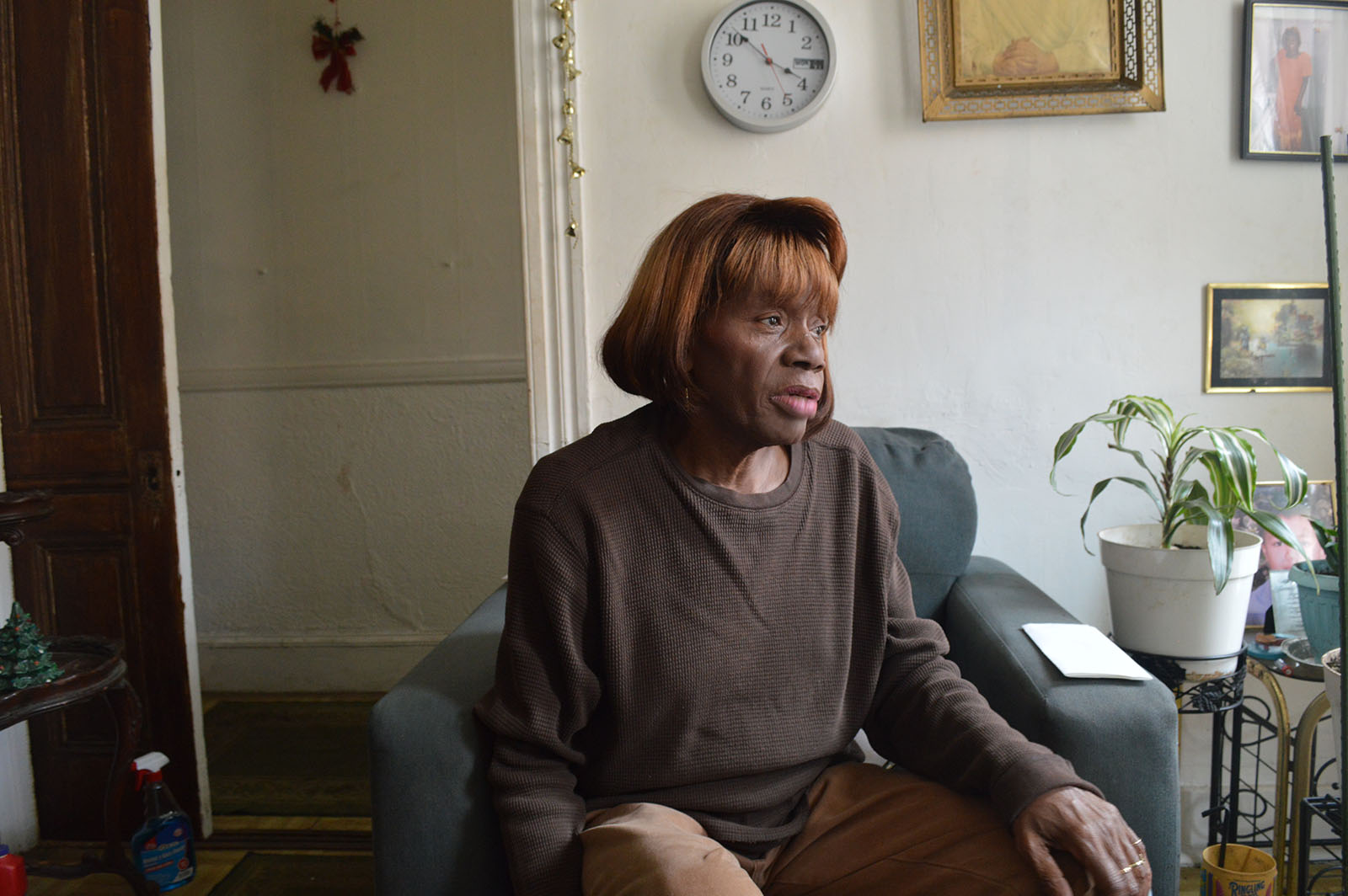This is the third in a series, “Bitter Cold: Climate Change, Public Health and Baltimore,” produced as part of a year-long effort by Capital News Service to examine the effects of climate change on public health in Baltimore. The Capital News Service is a non-profit, student powered news organization operated by the University of Maryland Phillip Merrill College of Journalism.
By Ian Round and Leah Brennan
CAPITAL NEWS SERVICE
Baltimore resident Delores Buchanan limits going outside when it’s cold. Neuropathy causes her feet to tense up and sting, and cold worsens the pain by reducing blood flow to the hands and feet. It is one of many conditions exacerbated by extreme temperatures.
“I try to avoid really extreme cold conditions because it’s not good for me,” she said. “I try to get someplace warm as soon as possible.”
Keeping the cold out of old Baltimore rowhouses is tough — and expensive, even for homeowners with good jobs. For lower-income residents, paying for needed repairs can eat into funds set aside for heat and hot water. And for people coping with illness, cold weather just compounds their problems. Buchanan, 72, is just one of the homeowners who have had problems with cold.
To soothe the pain in her feet and relax her muscles, she takes hot baths with Epsom salts.
“There’s no better feeling than getting in a hot tub of water and relaxing,” she said. “It just makes my body feel so good.”
Buchanan used to take those baths every night, but now she’s passing on them in an effort to save money. Two summers ago, some pipes burst. The repairs were an unexpected expense, and the flooding caused her water bill to skyrocket. Her April water bill says she still owed $1,186.36.
She missed a month’s payment to BGE and, because she already had been behind on her bills, she received a turnoff notice. “I never had a turnoff notice in my life. I’m going crazy, what can I do?”
“I said, ‘Oh, my Lord.’ Pray pray pray pray.”
She said she took out a $1,500 high-interest loan from a predatory lender, which she expects to pay off by the end of this year.
“I had to take what I could get real fast,” she said.
She tries to manage on about $760 a month from Social Security.
Buchanan owns a 99-year-old, two-story rowhouse in the Oliver neighborhood, on the city’s east side.
The pipes are fixed, but in an effort to climb out of debt, she’s trying to limit how much water she uses. That means she takes her hot bath once or twice a week, usually as a weekend treat, or to loosen up the night before church.
“I can’t afford to keep compiling that water bill,” she said. “It just scares me to death.”
Bills for residents going up
The city’s Department of Public Works estimated the average monthly water bill for a three-person house at $92. That number will increase by 10% a year for each of the next three years and double in 10. Residents already pay about twice what they did nine years ago.
Buchanan’s low income means she’s careful about how much hot water she uses. Because she limits the hot water, she experiences more pain. And because she’s in more pain, she’s unable to work.
She’s spent most of her life in this rowhouse neighborhood near the Johns Hopkins medical campus. According to data compiled by the city’s Department of Planning, Oliver’s population decreased by 24% between 2000 and 2010. In 2010, more than 70% of households in Oliver had incomes below $50,000.
Buchanan was born in Washington and spent much of her childhood in South Carolina. She said that her mother was a “gypsy,” bouncing around the East Coast and Midwest. Her father was never in her life, and she was mostly raised by an aunt and uncle.
She moved to Baltimore as a teenager and found it a “breathtakingly beautiful city.”
She said she worked part-time for 20 years as a personal care provider, a position she said was like being a nursing assistant. She visited homes and assisted people with housekeeping and other daily activities and took them to doctor’s appointments.
Buchanan was driving when she experienced the symptoms of neuropathy for the first time. One day, she said, her foot clenched like a fist. She pulled over and had to pry open her toes with her hands.
She had always been athletic — she ran track at Dunbar High School — so she was confused by the diagnosis.
She said she knows some people with diabetes experience neuropathy, but she doesn’t know what caused her condition. “It’s like trying to walk with bricks on your feet,” she said. “It’s not the normal type of movement in the feet.”
On bad days, she doesn’t move easily around the house.
Repairs piling up
Built in 1920, the house has never been renovated, and she points out repairs that were begun but never completed. The water from the burst pipes severely damaged the kitchen’s wall paneling and flooded the basement. Mold began growing on the kitchen walls, which had to be taken down to the boards beneath. The walls have not been replaced.
“Every time I come in this kitchen it takes my spirit away,” she said.
Her roof needs to be repaired, and she’s hoping a community organization can help her. A leak in her bathroom is causing the wallpaper to peel.
To pay her bills, Buchanan took temporary jobs, including a demanding one that required her to work 12-hour days on her feet three or four times a week. She stayed at the job despite the warning signs her body gave her.
“My inner spirit said, ‘Don’t do it, don’t do it,’ but I was trying to keep this house going,” she said.
While she worked that temp job, she said she wasn’t taking care of herself. She wasn’t eating breakfast and was losing weight.
The work “just tore me down,” she said. “For someone like me it was extremely difficult.”
After working there for a year, she had a stroke in early 2018. She hasn’t worked since, but said she would like an easy job.
Buchanan says her only choice is to sell the house. According to the State Department of Assessments and Taxation, it’s worth $44,000. She said she’s gotten offers as low as $20,000. She wants to move out as soon as possible, but she won’t settle for an offer that low.
“I don’t have the income to stay in my house,” she said. “My back is against the wall and I don’t know what to do.”





Was this article somehow supposed to be related to climate change? If so, I missed the point. If anything, Baltimore’s average daily temperature is rising slightly over time. Thanks.